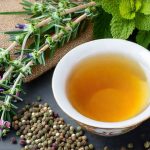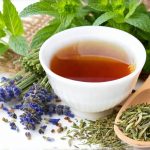Cystitis, an inflammation of the bladder, can be incredibly disruptive, causing discomfort, frequent urination, and sometimes even pain. Many people seek natural remedies alongside conventional treatments to manage their symptoms and support overall well-being. Herbal teas have long been touted for their soothing properties, with chamomile being a particularly popular choice. However, when dealing with a condition like cystitis, it’s crucial to understand the nuances of using herbal remedies – what might be helpful for one person could potentially aggravate symptoms in another, or even interfere with medical treatments. This article will explore the relationship between herbal teas like chamomile and cystitis, providing information on potential benefits, precautions, and considerations for those seeking complementary approaches to manage this common condition.
It’s important to state upfront that this is not a substitute for medical advice. Cystitis can stem from various causes – bacterial infections being the most prevalent – and requires proper diagnosis and treatment by a healthcare professional. Self-treating without understanding the underlying cause could lead to complications or delayed healing. Herbal teas can potentially offer supportive relief, but they should be viewed as part of an overall management plan developed in consultation with your doctor. We will focus on providing information that empowers you to discuss these options intelligently with your physician and make informed decisions about your health.
Chamomile & Cystitis: Potential Benefits and Considerations
Chamomile tea is well-known for its calming properties, often used as a sleep aid or stress reliever. But could it offer more than just relaxation when dealing with cystitis? The potential benefits arise from several compounds found in chamomile flowers, including apigenin, which has demonstrated anti-inflammatory effects in some studies. Inflammation plays a significant role in the discomfort associated with cystitis, so reducing inflammation may help alleviate symptoms. Additionally, chamomile possesses mild antispasmodic properties, meaning it could potentially ease bladder spasms that contribute to frequent and painful urination. However, these are potential benefits based on research into the compounds within chamomile; specific studies directly linking chamomile tea to significant improvements in cystitis symptoms are limited.
It’s crucial to understand that the type of cystitis matters. If your cystitis is caused by a bacterial infection (the most common scenario), chamomile won’t address the underlying cause. Antibiotics are typically required to eliminate the bacteria. In such cases, chamomile might offer symptomatic relief – helping with discomfort while antibiotics do their job – but it isn’t a cure. For non-infectious cystitis, potentially triggered by irritation or allergies, chamomile’s anti-inflammatory properties could be more beneficial, though still not a guaranteed solution. Furthermore, individual responses to herbal teas vary significantly; what works for one person might not work for another.
Finally, consider the potential for allergic reactions. Although uncommon, some individuals are allergic to plants in the Asteraceae family (which includes chamomile, ragweed, marigolds, and daisies). If you have known allergies to these plants, avoid chamomile tea. Always start with a small amount to assess your tolerance before consuming larger quantities.
Beyond Chamomile: Other Herbal Teas & Cystitis Management
While chamomile is often the first herbal tea that comes to mind for soothing effects, other options may also be considered (again, always in conjunction with medical advice). Dandelion leaf tea acts as a gentle diuretic, potentially helping to flush out bacteria from the urinary tract. However, this should be approached cautiously if you have kidney problems or are taking diuretics prescribed by your doctor, as it could exacerbate these conditions. Uva ursi (bearberry) has traditionally been used for urinary tract health due to its antibacterial properties; however, prolonged use is not recommended and it shouldn’t be used without medical supervision because of potential toxicity concerns.
It’s important to recognize that herbal teas are often weaker in their active compounds compared to concentrated extracts or pharmaceutical medications. Their effects are generally more subtle and supportive rather than curative. Moreover, the quality of herbal tea can vary significantly depending on sourcing and processing methods. Look for reputable brands that prioritize organic farming and sustainable harvesting practices to ensure you’re getting a high-quality product. And remember – hydration is paramount when managing cystitis, regardless of whether you’re drinking herbal teas or water. Adequate fluid intake helps flush out bacteria and dilute urine, reducing irritation.
Hydration & Urinary Tract Health
Maintaining proper hydration isn’t just about drinking enough fluids; it’s about choosing the right types of fluids and establishing healthy habits. Water should be your primary source of hydration, aiming for at least 6-8 glasses per day, or more if you are physically active or live in a hot climate. Avoid sugary drinks, caffeine, and alcohol, as these can irritate the bladder and exacerbate cystitis symptoms. Caffeine acts as a diuretic, potentially worsening urgency, while alcohol can inflame the bladder lining.
Consider spacing out your fluid intake throughout the day rather than drinking large amounts at once. This helps maintain a consistent level of hydration without overwhelming the bladder. Pay attention to your body’s signals – drink when you feel thirsty and adjust your intake based on your activity level and environment. A helpful technique is to track your daily fluid consumption to ensure you’re meeting your needs.
Dietary Considerations During Cystitis Flare-Ups
Diet plays a crucial role in managing cystitis symptoms, even alongside herbal tea consumption. Certain foods can irritate the bladder, while others may offer soothing benefits. Spicy foods, acidic fruits (like citrus and tomatoes), and processed foods are often best avoided during flare-ups. These can exacerbate inflammation and increase discomfort.
Focus on incorporating anti-inflammatory foods into your diet, such as berries, leafy greens, and fatty fish rich in omega-3 fatty acids. Probiotic-rich foods like yogurt or kefir may also support gut health, which is linked to immune function and overall well-being. A balanced diet helps strengthen the body’s natural defenses and promotes healing.
When to Seek Medical Attention & Precautions with Herbal Teas
It’s vital to differentiate between mild cystitis symptoms that might be managed with supportive care (including herbal teas) and more severe symptoms that require immediate medical attention. Seek medical help if you experience fever, back pain, blood in your urine, or persistent pelvic pain. These could indicate a kidney infection or other serious complication.
When considering herbal teas for cystitis management, remember these important precautions: – Always consult with your doctor before incorporating herbal remedies into your treatment plan. – Inform your doctor about all medications you are taking, including over-the-counter drugs and supplements, to avoid potential interactions. – Start with small amounts of herbal tea to assess your tolerance. – Discontinue use if you experience any adverse effects, such as allergic reactions or digestive upset. – Herbal teas should never be used as a substitute for prescribed medications or medical care. They are best viewed as complementary approaches that may offer supportive relief alongside conventional treatments.





















